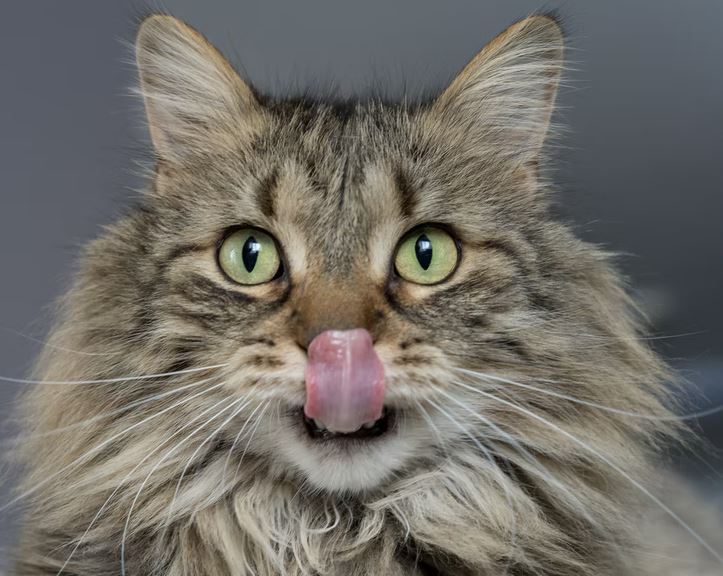While dogs are ravenous eaters, cats tend to be picky with the food they eat. With that, it’s easy for many feline guardians to think that their furry pets know what’s best for them. Yes, cats may turn away their nose from raw meat, but that doesn’t imply they would do the same for raw meat, dairy products, or a can of tuna.
You might be surprised that those common ‘human’ foods are actually dangerous for them and may cause various health problems. So, it’s best to know what foods you should never feed your cat. To help out, continue reading the rundown below to ensure your cat won’t be gobbling something that they can give their health a whirl – plus what to do should you end up giving her something you shouldn’t.
Milk and Dairy Products
Watch cartoons and you’ll see cats gathering around a bowl and fondly drinking milk. Truth to be told, cats can only drink their mother’s milk until they’re weaned as early as four weeks old. After that, they become lactose intolerant, which means they no longer have enough lactase enzymes required to properly digest milk proteins and sugars. If they consume high and frequent amounts of milk and dairy products, it will lead to gastrointestinal pain, diarrhea, and eventual weight loss, if left unaddressed.
Alcohol
Alcohol is toxic not only for cats but even for other animals. Small amounts of beer, wine, or liquor will cause nasty issues, such as vomiting, breathing problems, disorientation, diarrhea, coma, and death. Alcohol has the same effect on a cat’s brain and liver as it would affect humans. However, given their small size, a lick of alcohol can already do them a lot of damage. Often, two teaspoons are enough to send your cat into a coma. Add another one and she could get killed. So, be sure not to leave any alcoholic drink unguarded.
Chocolate
Dogs aren’t the only ones that have problems with chocolate. Cats, too! Cacao seeds used in making chocolate contain theobromine and caffeine. Both are types of naturally occurring compound methylxanthines, which can be lethal for cats.
Though cats won’t normally chomp down chocolate, there are owners who would woo their cat to eat chocolate, thinking they’re giving her a treat not knowing it’s toxic for their cat.
It can lead to vomiting, diarrhea, breathing issues, tremors, muscle rigidity, weakness, coma, and even cardiac arrest and death. With that, have chocolates for yourself and your loved ones.
Raw Eggs
Salmonella is present in raw eggs, which makes it harmful for cats. The bacteria can cause vomiting, diarrhea, and other serious symptoms. Aside from those risks, egg whites also contain avidin, a protein that prevents the absorption of biotin, an essential B vitamin. Lack of B vitamins can lead to hair loss, skin inflammation, and poor growth. That doesn’t mean cats can’t eat eggs, though. Just fully cook eggs and it will alter avidin’s structure and kill salmonella bacteria, making cooked eggs harmless.
Raw Fish
Cats love fish due to its nutritional content. It’s a high-quality source of fat and protein, which they can detect through their taste buds. Adding the distinct fish smell that’s very enticing for these felines, it’s little wonder why cats are genuine fish lovers. Yet, you shouldn’t be giving your cat raw fish, be it a treat or as a meal.
Anchovies, tuna, sardines, herring, cod, and even water-dwelling critters like clams and mussels have thiamine enzymes. It breaks down thiamine, another B vitamin vital for cats. Lack of thiamine may lead to neurological problems and even convulsions. Luckily, cooking fish also changes the structure of thiamine enzymes, making cooked fish fit for your cat’s consumption.
Raw Meats
Lions, tigers, cheetahs, and other big cats eat raw meat in the wild. However, just because their wild counterparts eat raw meat doesn’t mean a domestic cat should do the same. Big cats have adapted to a raw meat diet and have a stronger stomach to digest it. Domestic cats don’t have the same system, which makes raw meat unsafe for your cat.
Cats can get sick from harmful disease-causing bacteria (E.coli and salmonella) and parasites (tapeworms and Toxoplasma) present in raw meat. Still, cats are obligate carnivores, making meat an essential part of their diet. What you can do instead is to par-cook raw meat just enough to kill these bacteria and parasites while preventing the loss of nutrients from high heat.
Garlic, Onion, and Chives
You should never give your cat onions, garlic, and chives, regardless of whether they’re raw, cooked, dehydrated, or powdered. All these food items contain thiosulphate, a compound that breaks down a feline’s red blood cells. When your cat has taken an ample amount, she can suffer from a serious condition called hemolytic anemia. What’s great is that cats won’t be searching for them in your pantry. Yet, a stubborn cat may try to eat a few bites of your garlic bread onion rings. Always stay wary!
Bones
There’s no problem sharing your delicious cooked meal with your cat, be it chicken, turkey, or fish. Just make sure to remove all the bone parts from the meat first. If your cat eats a small bone, it can get stuck in her throat or mouth or splinter her esophagus and intestines, causing serious injuries that may even need a major surgery.
Dough
Bread or pizza dough contains yeast that if your cat ingest can produce carbon dioxide and alcohol that can be detrimental for your cat and lead to poisoning. Like in the oven, the dough can also expand or rise inside your cat’s abdomen, resulting in bloat and severe pain. It can potentially cause their stomach to twist that will be a life-threatening emergency.
Grapes, Currants, and Raisins
While experts are still perplexed as to the exact reason why, grapes, currants, and raisins are toxic cats and can cause acute kidney failure. Never feed them to your cat, as a small amount is enough to make her ill. Don’t place them on countertops, tables, or other places where your cat can quickly access them.
What should you do if your cat eats something she shouldn’t?
You’re now aware of which foods not to feed to cats and have taken precautionary measures to keep these goodies away. Here comes your guest who’s not aware and gave your cat a piece of her garlic snack. Or, your kid spilling her milk and your cat was quick enough to take a few licks.
In most cases, infrequent consumption doesn’t pose too much risk and your cat will most likely suffer only from discomfort in her stomach. Still, you need to watch out for any symptoms and call your veterinarian right away if they last longer. Your vet can check your cat’s condition and provide necessary treatments.
Remember, your cat’s life and overall wellness depend greatly on the food she eats. Only provide her a complete and well-balanced diet, plus lots of fresh water daily. Through that, you can keep your beloved feline always happy and healthy.

